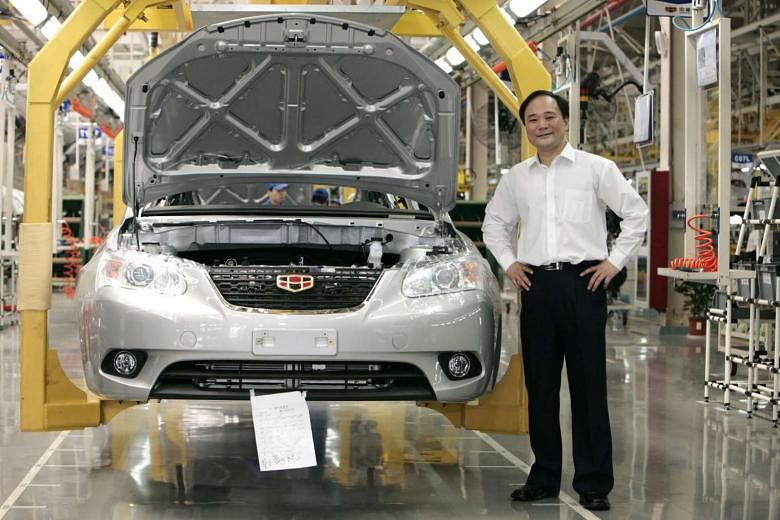Li Shufu, chairman of Zhejiang Geely Holding Group, was asked by Volvo's union representatives in Belgium in 2009 to sum up in three words why he was keen to buy the legendary Swedish carmaker. Li simply replied: "I love you."
The deal was finally signed on March 28, 2010, making it the largest overseas purchase by a Chinese car manufacturer.
This anecdote was recounted by Zhang Yi, Geely's deputy chief financial officer, at the China Forum on Global Corporations, held in Sanya on June 4-5.
The tale highlights not only Li's wit and communication skills in intense negotiations, but, more significantly, also his respect for the union.
Such consideration of union members continues to be "a must" for Geely's long-term success in overseas markets, said Zhang, who is also the auto company's chief audit executive.
Attended by eminent business studies scholars, media professionals and representatives from some of China's other "go global" brands, like Huawei, the gathering in South China's Hainan province aimed at exploring ways to become international corporations.
A number of Chinese firms, state-owned and private, have rushed into the international market through investing in overseas companies - including many unprecedentedly large deals.
However, Wang Zhile, director general of the Beijing New Century Academy on Transnational Corporations and the forum organiser, said few of these are truly global companies.
True global corporations, he said, represent a higher stage of development - reflecting a company's global vision, respect for local rules, and fulfilling global responsibilities such as addressing social and environmental concerns.
Compliance, in other words, takes centre stage. It simply means, according to forum attendees, following international rules when they are sometimes in conflict with, or even contradict, China's own domestic rules.
Geely's respect for local unions is such an example. Chinese companies face daunting challenges in the overseas market. Many of them are too accustomed to the rules of their domestic market, where, as it is often said, network and courage play a far bigger role.
This may deliver short-term gains at home, but success internationally entails long-term commitment and sustainable growth.
"Being opportunistic may bring rapid development, but the end could be rather miserable once you fall," Li told the audience in his opening remarks at the event.
The key to success? "Always see compliance as a bottom line. Every small step forward would be success, even though our development would be harder," he said.
Under this guidance, Volvo has emerged from its difficulties since Li's takeover and has registered a remarkable performance.
In 2015, for the first time in its 89-year history, it sold more than half a million cars (503,127 to be exact).
Sales in Europe increased 10.6 per cent. Volvo's rebirth in the United States was strengthened with a sales increase of 24.3 per cent over 2015. Sales in China remained steady, but showed an upward trend toward the end of the year.
Volvo sold 334,808 cars in 2009, the year before Geely's takeover.
It may still be too early to see if the growth is sustainable or how big a role compliance has played in the carmaker's early success under Li, but increasingly more Chinese entrepreneurs have indeed realised the need for long-term and sustainable development.
Ren Zhengfei, founder and president of technology firm Huawei, once famously said: "There is no room for opportunism in the international market."
Global corporations could also be China's new contribution to the world economy.
The country has contributed significantly to the world economy over the past four decades through rapid growth. China itself has successfully developed into the second largest economy.
But size alone does not make greatness. At a time when the world economy is still trying to emerge from turmoil, China-based global corporations that focus on compliance and abide by international market rules could be the country's fresh contribution, boosting world growth in a more sustainable way.
Speaking at the forum, Xiong Zhijun, former president of the Supervisory Board for Key Large State-owned Enterprises, said that developing global corporations could be China's contribution to the "global value chain".
At the time when China is adjusting its growth model from quantitative to a more qualitative one, there could be no better timing for its companies to pursue this goal.

